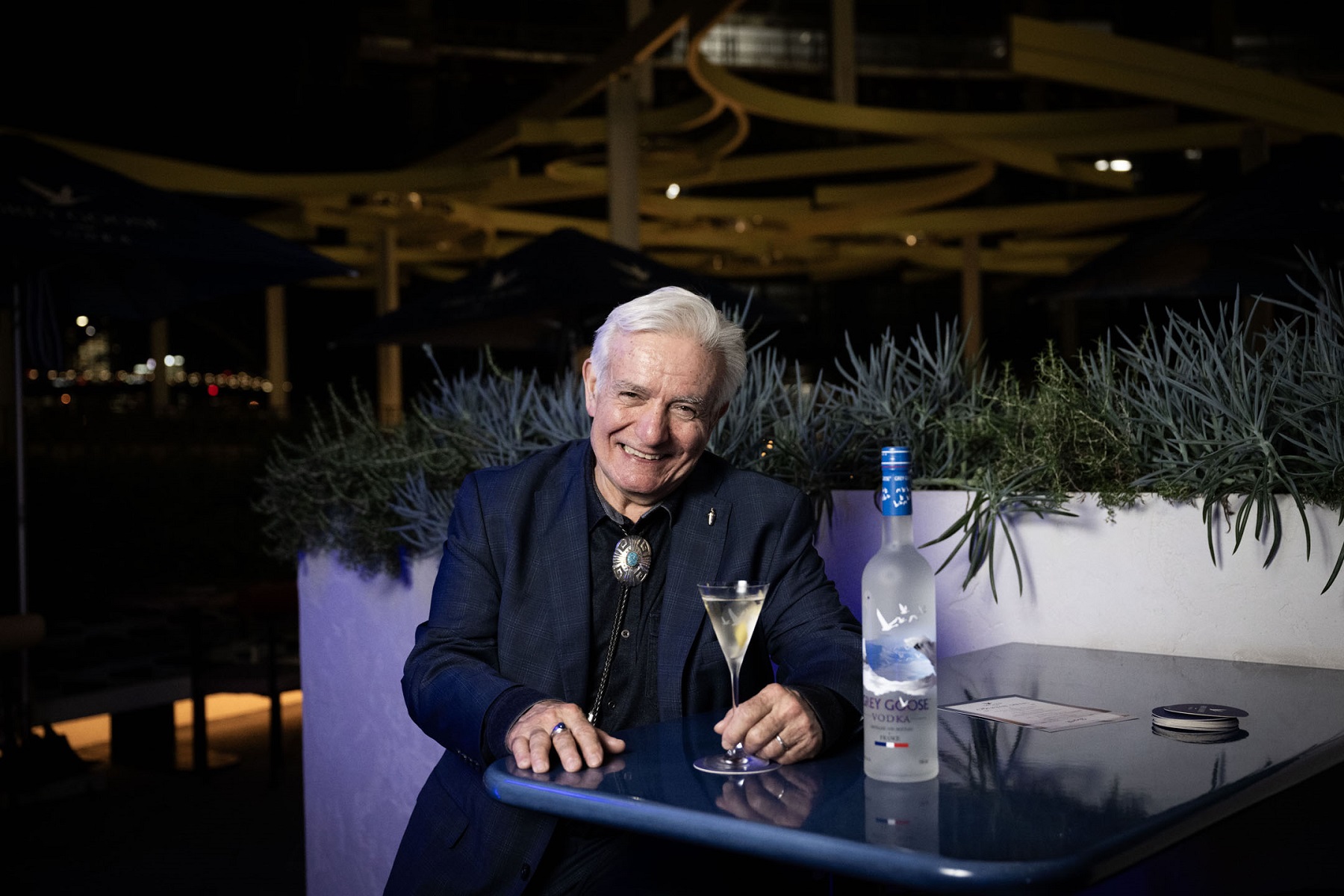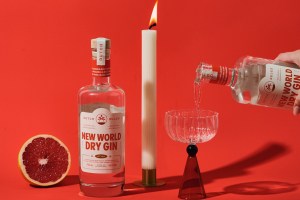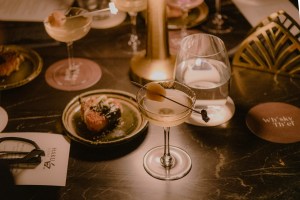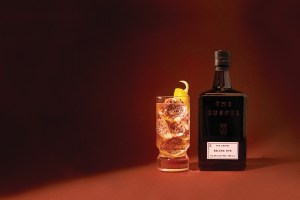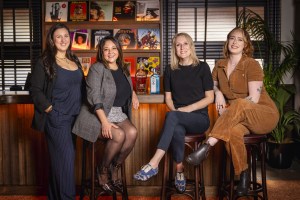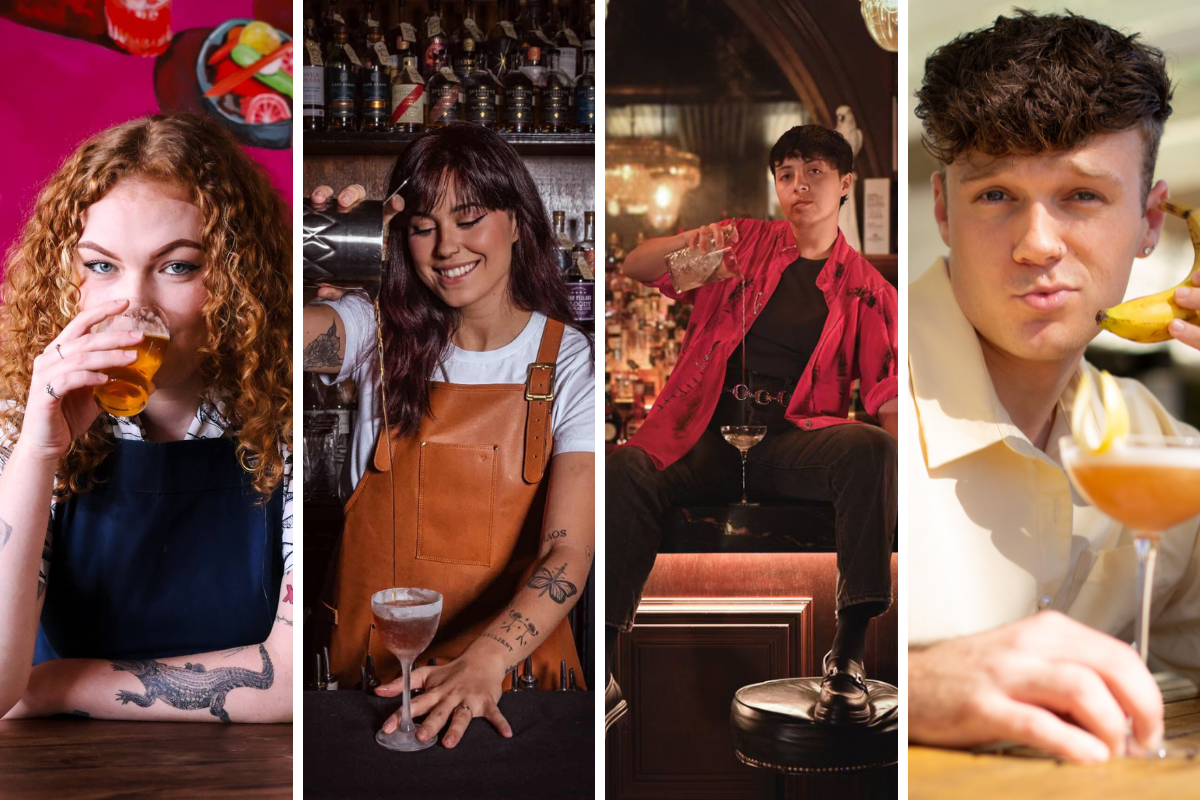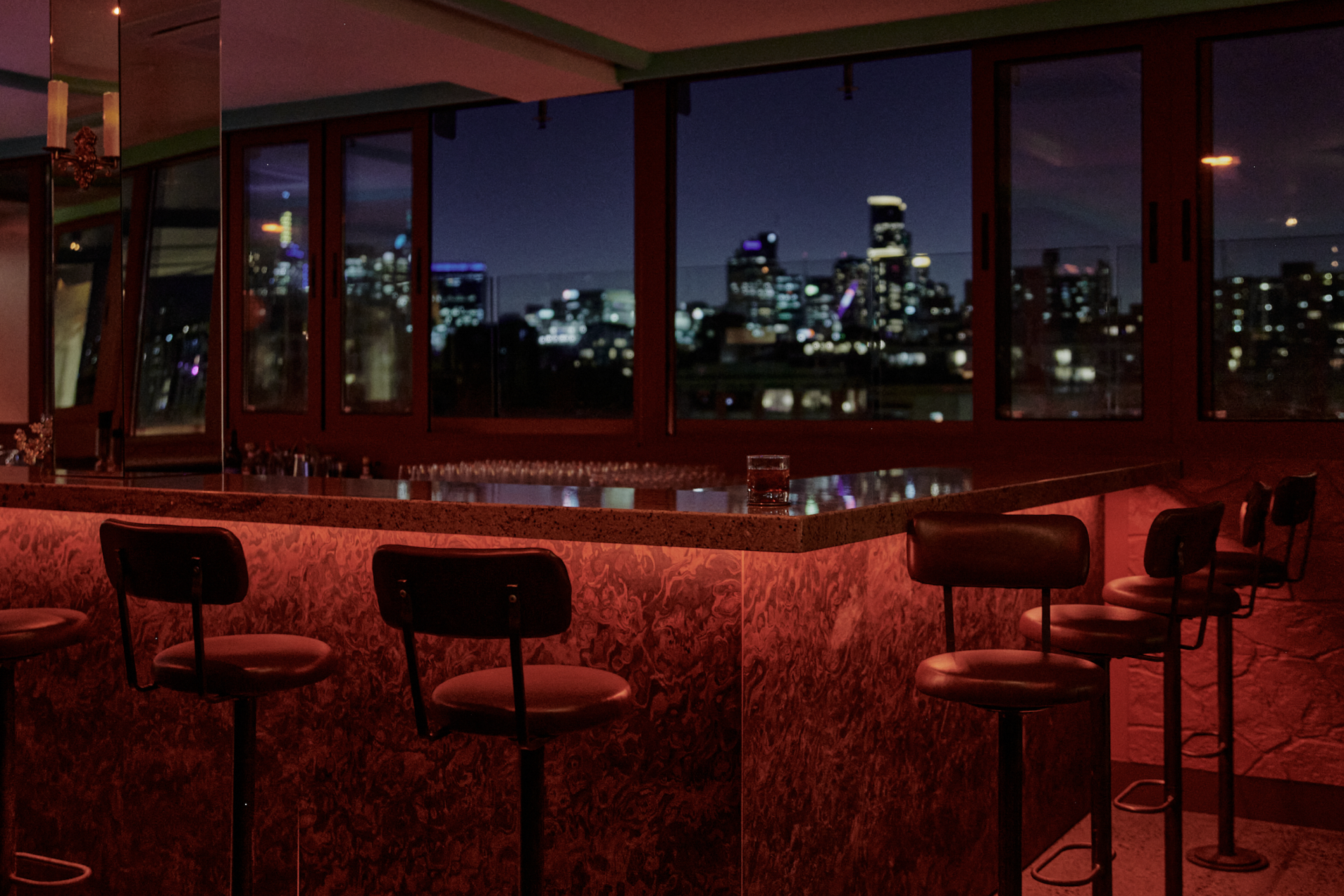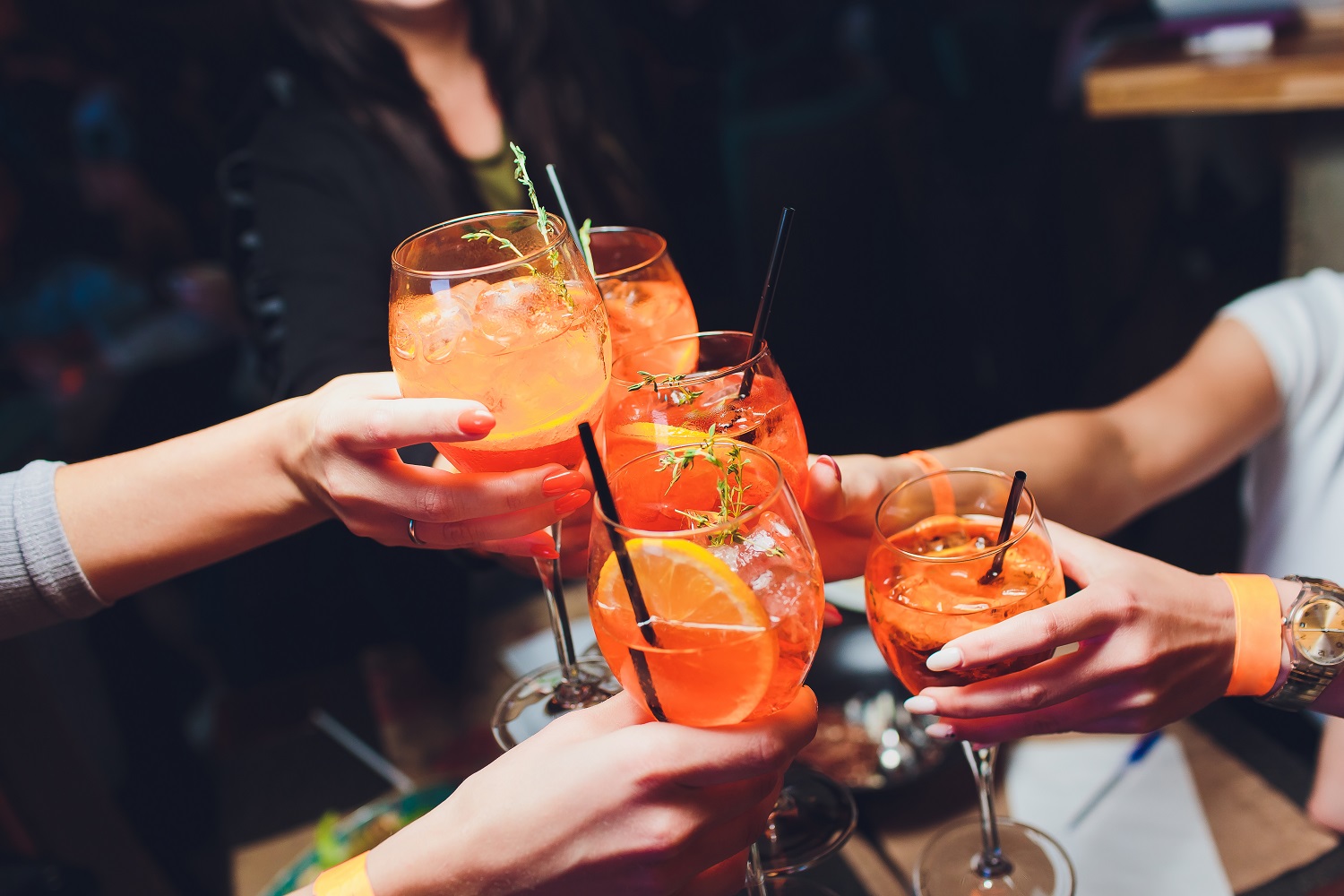In a world where legend has become a word used to describe someone who unexpectedly comes back from a bar with a bag of chips, Dale DeGroff stands for what it should mean – a person who has played a huge role in shaping modern-day bars and bartending.
He has spent many years lifting the profile of bartending around the world and educating bartenders on what it really takes to shine behind those three feet of wood.
Dale has previously described media as a beautiful place if you’re a chef and less so if you are making things with hard spirits, but he does believe that position is shifting with bartending being way more culinary than it ever was, “in terms of culinary techniques, and ingredients”.
Speaking to Bars and Clubs, Dale said: “I would talk to journalists in the 90s and I kept saying over and over again, ‘you may laugh at me, but this is the era of the star chef, they’re all on TV all over, but just watch the new first decade of the new millennium is going to be the era of the star bartender’. I’m happy to say that’s happened. It’s really happened in a really interesting way. It was a bit awkward at times, just like the whole culinary revolution was I mean, I remember when nouvelle arrived, and going to these nouvelle dinners where there would be a 15-inch plate with three scallops and 15 coloured dots, and you were thinking, ‘where’s my meal?’.
“But some chefs really did get it and the food was good, and the service was good. There was the idea of new, fresh local ingredients, not overworking the food. And so that was a that was an amazing thing.”
In many ways bartending has followed a similar path with some interesting creations initially but the techniques and styles and ingredients have evolved and the focus on fresh and local ingredients and botanicals now influencing drinks.
“I was in Perth the last time I was here and I was blown away,” Dale explains. “These guys were out there crawling around the desert floor looking for botanicals to put in their cocktails.”
As this excitement for new products and flavours developed, along with research into the history of drinks and reviving dormant drink styles, the role of the bartender evolved and it grew into a career, rather than being a job.
Dale explained: “I think if there’s anything I really brought to this industry back when we opened The Rainbow Room in 1987 it’s that we were getting a high profile, we were on the Today Show and in newspapers. So, there were these young guys seeing that and saying ‘hey, it’s okay to be a bartender again’, because post prohibition it wasn’t okay.”
This was almost like the Big Bang moment for the modern bartender, and it has evolved over the last three to four decades and continues to evolve. But there is a very important ingredient in evolution, and it is one that Dale passionate about – and that passion is understandable for a man who has been an integral part of this evolutionary process for the last 55 years.
He told Bars and Clubs: “This brings me to something for young bartenders: you just can’t skip stages in your career. You just can’t because you have to live through them, especially when it comes to the interaction between the bartender and their guests.”
For Dale that journey began when he moved to New York in 1969 and later met with renowned restaurateur Joseph Baum and the pair created a partnership that would spark the bartender and cocktail revolution.
“The only reason I can do these things like this is week is because back in 1985 Joe forced me to go back to the 19th century, and study what was happening back then,” Dale said. “So, I accumulated books and knowledge that helped me with working with Joe on so many projects in The Rainbow Room and with a changing menu.
“The first menu we had there, if you look at the drinks, they are all classics from the 19th and early 20th century, but these were drinks that just hadn’t been on menus since before prohibition.
“I was able to rotate in some really great drinks, but Joe did not want variations, it was just the classics. Our job at The Rainbow Room was to create dishes with tradition, and great drinks with tradition. It was the guys in the craft movement at the end of the last millennium, who saw what I was doing and said, ‘Okay, that’s cool, but what would happen if I put Mezcal into the Old Fashioned’ and so they started getting really interesting with the drinks they were making.
“I’ll say this, there’s no chef, that I know of, that will allow one of his cooks to work on the menu – they are not there yet. So, for a young bartender to want right away to be publishing a book or becoming an ambassador for rum or whatever, you need to dig in a little bit deeper before you do. Otherwise, you’re going to be behind the eight ball your whole time you’re going to get frustrated and end up doing something else. Because you just can’t skip stages of your career.
“Also,” Dale says, “take the time to understand wine, coffee, beer, tea, all beverages how they’re made, get really deep into it. Study wine and study cocktails, study spirits, go to distilleries around the world. (Now you can do that because liquor companies are going to take you for free.) Spirits producers are spending more money now than ever because they realise that the trade needs to be on their side. So, they put a lot of money into educating the trade. But if a bartender does reach that level of expertise, they’re in for a low to middle six figure job with the luxury drinks or hotel or whatever. That are opening luxury properties in Shanghai, Hong Kong, Paris, Southeast Asia, wherever.
“If you understand what those different cultures need from a beverage point of view, you are invaluable as the Beverage Manager for that company, because you can walk in, you can hire the right people, you can have the right drinks and create the right experiences for your guests.”
Another aspects of the bartender career-path that Dale is particularly passionate about is tasting, flavour knowledge and building your own library. This grew as he and his partners developed the Beverage Alcohol Resource, which they decided had to include the five-day Master’s Class, and, he says, “we decided we were going to put these guys through daily tastings of 200, 300 spirits from all around the world. Then have them tasting cocktails blind and get them figuring out the ingredients.
“It was fascinating to go down that route because some bartenders might think ‘oh I’m not sure about the taste, and I’m just used to some terms being thrown around’. That’s bullshit, you’ve got it here [in your brain]. Maybe you don’t have the library yet, but as my partner Doug Frost used to say, ‘if you haven’t been thrown out of the spice department at Whole Foods yet you are not doing your job properly.
“You can’t build your library if you don’t get out and start figuring out what stuff is. Then you’ll have the vocabulary and be able to participate in a really meaningful way.
“Now, everyone is going to taste things differently, but what this means is that when the sales guys walks into your bar and says ‘oh, those three gins you got back there forget them, this one is better’, you’re going to be able to say ‘I disagree with you actually, I think this one is better than yours, this one is totally different, and yours is good for this, but not good for that’, and you just can’t skip that learning, and those stages of being a bartender.”
And ultimately, all of this is summed up when Dale answers the question: What makes a good bartender become a great bartender?
“Knowledge is a huge skill in drink making, and let’s face it understanding how to create a really high degree of deliciousness is required, and then all that’s meaningless unless you can communicate over that three feet of mahogany. So have got to have all three of those things.”

